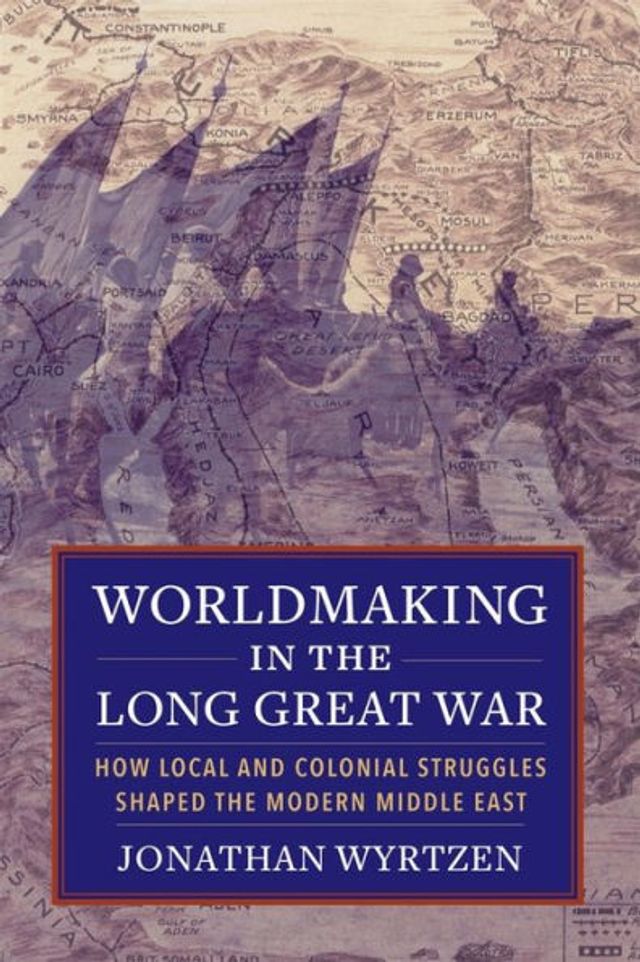Home
the Ottoman Endgame: War, Revolution, and Making of Modern Middle East, 1908-1923
Barnes and Noble
the Ottoman Endgame: War, Revolution, and Making of Modern Middle East, 1908-1923
Current price: $27.89


Barnes and Noble
the Ottoman Endgame: War, Revolution, and Making of Modern Middle East, 1908-1923
Current price: $27.89
Size: Audiobook
Loading Inventory...
*Product information may vary - to confirm product availability, pricing, shipping and return information please contact Barnes and Noble
An astonishing retelling of twentieth-century history from the Ottoman perspective, delivering profound new insights into World War I and the contemporary Middle East
Between 1911 and 1922, a series of wars would engulf the Ottoman Empire and its successor states, in which the central conflict, of course, is World War I—a story we think we know well. As Sean McMeekin shows us in this revelatory new history of what he calls the “wars of the Ottoman succession,” we know far less than we think. The Ottoman Endgame brings to light the entire strategic narrative that led to an unstable new order in postwar Middle East—much of which is still felt today.
The Ottoman Endgame: War, Revolution, and the Making of the Modern Middle East
draws from McMeekin’s years of groundbreaking research in newly opened Ottoman and Russian archives. With great storytelling flair, McMeekin makes new the epic stories we know from the Ottoman front, from Gallipoli to the exploits of Lawrence in Arabia, and introduces a vast range of new stories to Western readers. His accounts of the lead-up to World War I and the Ottoman Empire’s central role in the war itself offers an entirely new and deeper vision of the conflict. Harnessing not only Ottoman and Russian but also British, German, French, American, and Austro-Hungarian sources, the result is a truly pioneering work of scholarship that gives full justice to a multitiered war involving many belligerents.
McMeekin also brilliantly reconceives our inherited Anglo-French understanding of the war’s outcome and the collapse of the empire that followed. The book chronicles the emergence of modern Turkey and the carve-up of the rest of the Ottoman Empire as it has never been told before, offering a new perspective on such issues as the ethno-religious bloodletting and forced population transfers which attended the breakup of empire, the Balfour Declaration, the toppling of the caliphate, and the partition of Iraq and Syria—bringing the contemporary consequences into clear focus.
Every so often, a work of history completely reshapes our understanding of a subject of enormous historical and contemporary importance.
The Ottoman Endgame
is such a book, an instantly definitive and thrilling example of narrative history as high art.
Between 1911 and 1922, a series of wars would engulf the Ottoman Empire and its successor states, in which the central conflict, of course, is World War I—a story we think we know well. As Sean McMeekin shows us in this revelatory new history of what he calls the “wars of the Ottoman succession,” we know far less than we think. The Ottoman Endgame brings to light the entire strategic narrative that led to an unstable new order in postwar Middle East—much of which is still felt today.
The Ottoman Endgame: War, Revolution, and the Making of the Modern Middle East
draws from McMeekin’s years of groundbreaking research in newly opened Ottoman and Russian archives. With great storytelling flair, McMeekin makes new the epic stories we know from the Ottoman front, from Gallipoli to the exploits of Lawrence in Arabia, and introduces a vast range of new stories to Western readers. His accounts of the lead-up to World War I and the Ottoman Empire’s central role in the war itself offers an entirely new and deeper vision of the conflict. Harnessing not only Ottoman and Russian but also British, German, French, American, and Austro-Hungarian sources, the result is a truly pioneering work of scholarship that gives full justice to a multitiered war involving many belligerents.
McMeekin also brilliantly reconceives our inherited Anglo-French understanding of the war’s outcome and the collapse of the empire that followed. The book chronicles the emergence of modern Turkey and the carve-up of the rest of the Ottoman Empire as it has never been told before, offering a new perspective on such issues as the ethno-religious bloodletting and forced population transfers which attended the breakup of empire, the Balfour Declaration, the toppling of the caliphate, and the partition of Iraq and Syria—bringing the contemporary consequences into clear focus.
Every so often, a work of history completely reshapes our understanding of a subject of enormous historical and contemporary importance.
The Ottoman Endgame
is such a book, an instantly definitive and thrilling example of narrative history as high art.


















